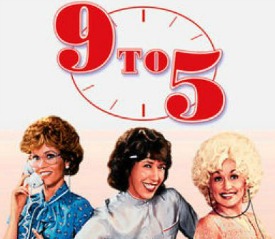A typical work day historically involved eight consecutive hours of effort for full-time workers, but today, most don’t stop working when the clock hits 5 p.m.
According to a new survey from CareerBuilder, nearly 3 in 5 workers (59 percent) believe the traditional 9-to-5 work day is a thing of the past. Forty-five percent of workers say they complete work outside of office hours; and 49 percent say they check or answer emails when they leave work.
The national survey was conducted online by Harris Poll on behalf of CareerBuilder between May 11 and June 7, 2016, and included a representative sample of 3,244 full-time workers in the private sector across industries and company sizes.
“While smartphones and other technology allow us to remain connected to the office outside of normal business hours, it may not always be a good thing as workers are having trouble disconnecting from their jobs,” said Rosemary Haefner, chief human resources officer for CareerBuilder. “Not surprisingly, younger workers ‘attached to their mobile devices’ are more likely to work and check emails past business hours, while older workers feel less pressure to check-in after they have put in a full day of work.”
Experience Earns Flexibility
A higher proportion of workers in age groups 45 to 54 (65 percent) and 55 and older (61 percent), agreed that the typical eight-hour work day was a thing of the past than any other age group. By contrast, only 42 percent of workers aged 18 to 24 say the traditional 9-to-5 workday is outdated.
Workers 55 and older also say that they don’t keep working (60 percent) or check/respond to emails (54 percent) outside of office hours – again higher than any other age group. For example, only 52 percent of workers in the 18 to 24 age group say they do not keep working after business hours; and even less (41 percent) say they do not check or answer work emails outside of the office.
Burning the Midnight Oil
While similar percentages of men and women (58 and 60 percent, respectively) say the typical 9-to-5 workday is a thing of the past, men are still more likely than women to work and respond to emails once they leave the office.
Forty-nine percent of men say that they work outside of office hours, versus only 42 percent of women. Men are also more likely to remain tied to the office when they leave – 54 percent say they answer emails outside of office hours, as opposed to 43 percent of women.
Getting a response via email from a co-worker or business partner can also depend on their profession. IT (68 percent) and sales (65 percent) professionals say they check or respond to emails after business hours – perhaps making them more likely to craft a response.
Thanks for reading CPA Practice Advisor!
Subscribe Already registered? Log In
Need more information? Read the FAQs
Tags: Firm Management




